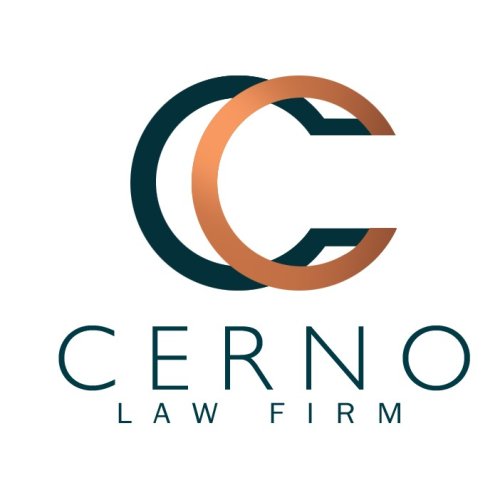Best Bankruptcy Lawyers in Luxembourg
Share your needs with us, get contacted by law firms.
Free. Takes 2 min.
List of the best lawyers in Luxembourg, Luxembourg
About Bankruptcy Law in Luxembourg, Luxembourg
Bankruptcy in Luxembourg is governed by a legal framework designed to address the insolvency of individuals and businesses. It provides a structured process for the liquidation of assets and settlement of debts under the Tribunal of Commerce. The aim is to ensure an orderly distribution of a debtor's assets and to provide a fresh start for bankrupt entities. Luxembourg's laws are particularly notable for their emphasis on both creditor repayment and debtors' rights. This legal framework is continuously updated to reflect the changing financial landscape and economic challenges.
Why You May Need a Lawyer
There are numerous situations where legal advice in bankruptcy is necessary. For instance, if you're overwhelmed by debt and cannot meet your repayment obligations, a lawyer can help you navigate the complexities of declaring bankruptcy. Businesses facing financial collapse may require legal assistance to appropriately handle creditors and settle debts. Legal help is also crucial if contested bankruptcy petitions arise, or if you need to protect assets from being seized by creditors. A lawyer can provide strategic advice tailored to your specific situations, ensuring adherence to legal obligations while protecting your rights.
Local Laws Overview
Luxembourg's bankruptcy laws prioritize a structured bankruptcy process with the aim of fairness for both debtors and creditors. Key aspects include:
- Insolvency Declaration: An individual or business is considered insolvent if they are unable to meet their debt obligations.
- Role of the Tribunal of Commerce: The court oversees bankruptcy proceedings, including appointing administrators and approving plans for asset liquidation and distribution.
- Criminalization of Bankruptcy Fraud: Providing false financial information or fraudulent transactions may lead to criminal charges.
- Debt Restructuring Options: Companies may pursue debt restructuring and reconciliation with creditors as an alternative to bankruptcy.
Frequently Asked Questions
What constitutes bankruptcy in Luxembourg?
Bankruptcy is typically declared when an individual or business cannot pay their debts as they become due. This insolvency leads to legal proceedings for managing debts and assets.
Can I file for bankruptcy voluntarily?
While businesses are obligated to declare bankruptcy when insolvent, individuals may petition the court voluntarily if they are overwhelmed by unmanageable debt.
What happens to my assets in bankruptcy?
During insolvency proceedings, assets may be liquidated to repay creditors. Certain essential personal items may be exempt depending on the court's decisions.
Is there a way to avoid bankruptcy?
Alternatives include negotiating debt restructuring with creditors or seeking a reconciliation arrangement under court supervision to facilitate repayment.
How does bankruptcy affect my credit rating?
Bankruptcy negatively impacts your credit score, making it more difficult to secure loans or credit in the future.
Can I retain any control over my business after filing for bankruptcy?
Depending on the case, a business owner may retain some control during restructuring, but an appointed administrator typically manages affairs to protect creditors' interests.
Are my creditors entitled to seize all my personal assets?
Not all personal assets are subject to seizure. There are legal safeguards to protect a debtor from complete asset stripping, ensuring they can maintain a basic living standard.
What is the insolvency priority order in Luxembourg?
The distribution of assets follows a legal hierarchy giving priority to secured creditors, then preferred debts such as taxes, with unsecured creditors being last.
How long does the bankruptcy process take?
The duration varies depending on the complexity of the case, the number of creditors, and the assets involved, but it generally lasts several years.
Do bankruptcy laws offer any protection from creditor harassment?
Yes, once bankruptcy proceedings commence, creditors are typically barred from pursuing individual collections, providing some relief from direct harassment.
Additional Resources
For further assistance in understanding bankruptcy, the following resources may prove useful:
- Institut National pour le Développement et la Promotion de la Citoyenneté: Provides general advice and resources for legal issues, including bankruptcy.
- Tribunal de Commerce: The court system managing bankruptcy cases, providing procedural information.
- Federal Public Service Economy: Offers guidance on starting over after bankruptcy with business and economic advice.
Next Steps
If you need legal assistance with bankruptcy, it's crucial to assess your financial situation in detail and gather all relevant financial documents. Consult with a qualified bankruptcy lawyer to discuss your options and potential consequences. You can reach out to local law firms specializing in insolvency law or seek referrals from legal aid organizations. Initial consultations can provide clarity on how to proceed, whether exploring alternatives to bankruptcy or efficiently managing the legal process within Luxembourg's jurisdiction.
Lawzana helps you find the best lawyers and law firms in Luxembourg through a curated and pre-screened list of qualified legal professionals. Our platform offers rankings and detailed profiles of attorneys and law firms, allowing you to compare based on practice areas, including Bankruptcy, experience, and client feedback.
Each profile includes a description of the firm's areas of practice, client reviews, team members and partners, year of establishment, spoken languages, office locations, contact information, social media presence, and any published articles or resources. Most firms on our platform speak English and are experienced in both local and international legal matters.
Get a quote from top-rated law firms in Luxembourg, Luxembourg — quickly, securely, and without unnecessary hassle.
Disclaimer:
The information provided on this page is for general informational purposes only and does not constitute legal advice. While we strive to ensure the accuracy and relevance of the content, legal information may change over time, and interpretations of the law can vary. You should always consult with a qualified legal professional for advice specific to your situation.
We disclaim all liability for actions taken or not taken based on the content of this page. If you believe any information is incorrect or outdated, please contact us, and we will review and update it where appropriate.














